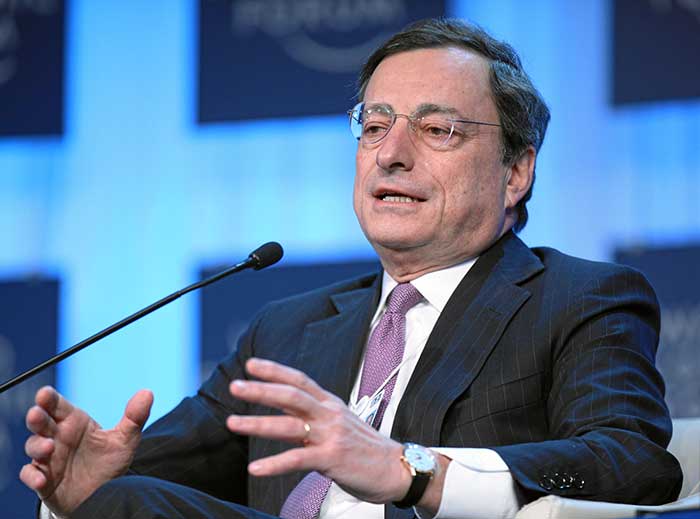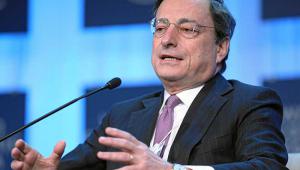web_mario_draghi_-_world_economic_forum_annual_meeting_2012.jpg

Mario Draghi, president of the European Central Bank
The bank's main interest rates will remain at zero and ECB president, Mario Draghi, reaffirmed its commitment to the extension of its bond-buying programme until December 2017.
While Draghi said the eurozone’s economy had improved, he warned that risks and uncertainty remain. He also gave the clearest indication yet as to the conditions required for the bank to consider normalising its monetary policy.
The ECB is targeting an average eurozone inflation of close to, but below, 2%. Figures from December show inflation across the bloc was at 1.1% in 2016, a jump up that has allayed fears the euro area could slip into deflation.
However, Draghi said any rise in inflation would have to occur over the medium term, be durable and self-sustaining, and be able to continue without extraordinary policy support – implying this is not the case at the moment.
Any increase would also have to occur across the eurozone as a whole, he said. Currently, the bloc is experiencing notable variations in the inflation rate across euro area countries, with stronger economies like Germany close to 2% and deflation in economies like Bulgaria and Romania.
This has led to criticism of ECB policies in Germany, where some argue the low interest rate has hurt savers and the economy in general.
Draghi fielded numerous questions on this during a press conference yesterday. He emphasised that German savers, borrowers, entrepreneurs and workers – like all others in the eurozone – had benefited from the policy, and have an interest in the recovery of the eurozone as a whole.
“An honest answer would be, just be patient,” Draghi said, “As the recovery will firm up, real rates will go up as well. This will happen for Germany and for other countries.”
Draghi also reaffirmed the continuation of another extraordinary programme that met fierce resistance in Germany – the ECB’s bond purchasing initiative, a form of quantitative easing.
He said it will continue, as announced last year, until December 2017, but be cut from €80bn to €60bn per month from March.
Jennifer McKeown, chief European economist at analysis firm Capital Economics, noted that Draghi had explained that he saw recent rises in eurozone inflation as “transient” and that the tough conditions he has outlined for policy normalisation are “unlikely to be met for a very long time.”
She said: “Accordingly, we still expect asset purchases to continue well into 2018,” and added they are likely to slow gradually that year.
There had been concerns that the original rules of the bond-buying programme would mean the ECB ran out of eligible bonds to buy. However, also yesterday, the bank updated these rules to allow more flexibility for its public sector debt purchases.
“This has greatly enlarged the eligible universe and we are confident about the smooth implementation of our programme, so we actually see no problems,” Draghi stated.
Draghi reiterated that the bank remains ready to increase the bond-buying programme in terms of size or duration if the economic outlook becomes less favourable.













